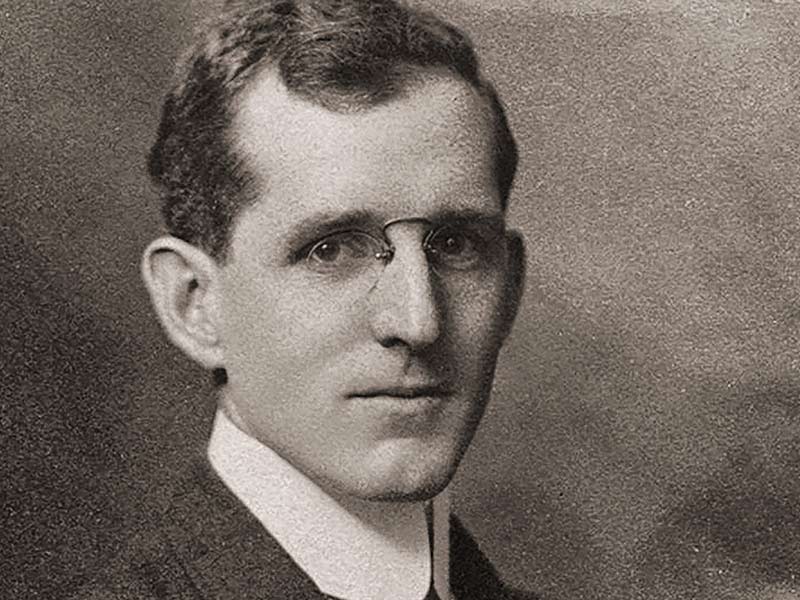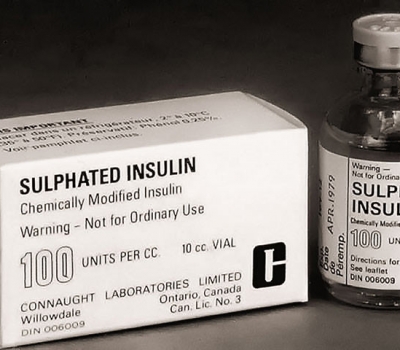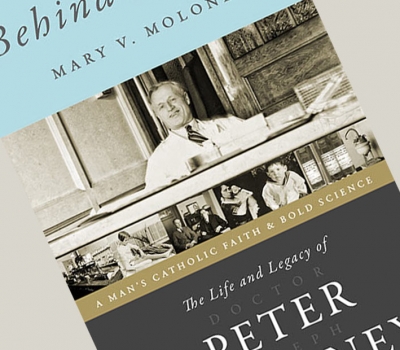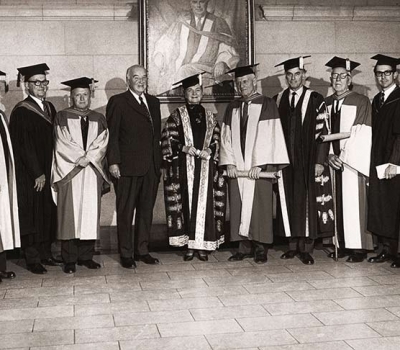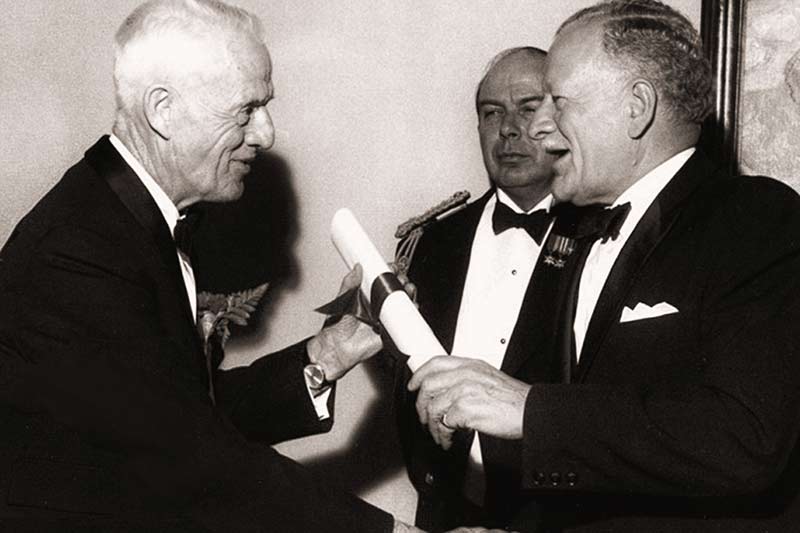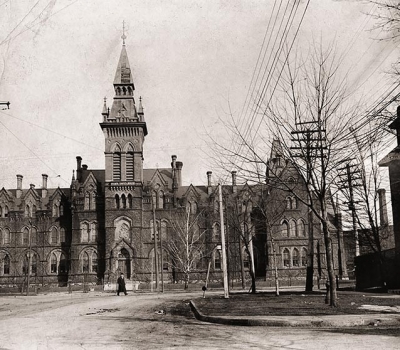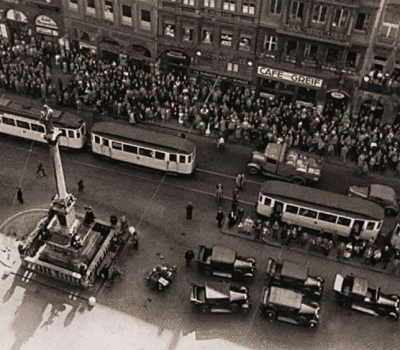"The dangerous, painstaking process of making diphtheria antitoxin entailed injecting a horse with small, incremental amounts of poisonous diphtheria toxin - lethal enough to kill several men but not a horse -- which mixed with the animal’s blood and built up immunity over time. The human anti-toxin was obtained from the pseudo-globulin by bleeding the horse.
Seeing my grandfather’s success, the U of T board of governors ultimately came round, endorsing his idea. On May 1, 1914, the University of Toronto Anti-Toxin Laboratories were formed. The notion was that a full range of preventive medicines be available free to all Canadians - “within reach of everyone,” in Gerry’s phrase -- regardless of class or income. Understandably, general practitioners, druggists and commercial drug manufacturers resisted the idea; they depended on paying patients for their livelihoods.
World War I broke out three months later. The fledgling lab, in a cramped basement space in the U of T medical building, was soon overwhelmed by the demand for preventive medicines to inoculate thousands of Canadian soldiers fighting on the western front. Fortuitously the philanthropist Albert Gooderham, chairman of the Red Cross and a scion of the Gooderham and Worts distillery empire came to the rescue. He donated 58 acres of farmland at Dufferin and Steeles and money for more extensive lab buildings. They grew into a dynamic wartime factory, pumping out enormous quantities of tetanus anti-toxin, anti-typhoid vaccine, smallpox vaccine, diphtheria anti-toxin and anti-meningitis serum. In the latter stages my grandfather served in France as a major commanding a mobile pathology lab.
In October 1917, at Albert Gooderham’s request, the Anti-Toxin Labs were re-named the Connaught Laboratories, after the out-going Governor-General of Canada, Prince Arthur, Duke of Connaught. Two months later, Gerry’s father died of a stroke, having lived long enough to witness his son’s first major professional achievement, as well as the birth of my father, Jack FitzGerald, born the same day as the future U.S. President, John Fitzgerald Kennedy.
A post-war influenza pandemic killed more than 20 million people worldwide. In its wake, the Canadian government established our first national Department of Health. To ensure a national presence for Connaught, Gerry astutely set up a scientific advisory committee that soon became the Ottawa-based Dominion Council of Health, comprising himself and all the federal and provincial deputy ministers of health. Despite early opposition from commercial drug manufacturers and druggists, every Canadian province was freely distributing Connaught’s products by 1920.
Read entire article: http://www.jamesfitzgerald.info/sof.html

